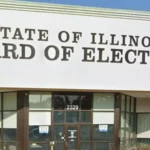
Yesterday, Landmark filed an amicus brief in a case called Consumers’ Research v. Consumer Product Safety Commission. Consumers’ Research is challenging the constitutionality of the CPSC’s structure. The CPSC was created in 1972 as an independent agency, meaning there is a statutory restriction on the President’s ability to fire its leadership. This is a violation of the Constitution’s separation of powers.
The Federal Trade Commission Act of 1914 included a provision that its commissioners could only be fired by the President for “inefficiency, neglect of duty, or malfeasance in office.” In other words, the President couldn’t fire them at will. In the 1930s, President Franklin D. Roosevelt wanted to fire FTC Commissioner William Humphrey, a holdover appointee from the Hoover Administration, for ideological reasons. In one of the seminal cases in administrative law, Humphrey’s Executor v. United States, the Supreme Court upheld the restriction on the President’s authority to remove him, arguing that the FTC commissioners wielded quasi-judicial and quasi-legislative powers, not executive power. This decision has been widely criticized. Its reasoning appears to be just a pretext to hinder FDR by a conservative Court in the 1930s that was wary of the New Deal.
Humphrey’s Executor allowed the blending of governmental powers within a single agency and the exercise of executive power that is beyond direct presidential control. Almost a century later, the current federal government is enormous and unrecognizable by comparison. As Chief Justice Roberts observed, “The growth of the Executive Branch, which now wields vast power and touches almost every aspect of daily life, heightens the concern that it may slip from the Executive’s control, and thus from that of the people.” Free Enter. Fund v. Pub. Co. Accounting Oversight Bd., 561 U.S. 477, 499 (2010). The consequences of Humphrey’s—a federal bureaucracy insulated from presidential control—have been detrimental to political accountability and individual liberty.
In our brief, we urged the Supreme Court to hear the case in its new term this fall to overturn the Fifth Circuit’s opinion below and finally overturn Humphrey’s Executor. As the late Justice Antonin Scalia once observed in Morrison v. Olson, the Constitution provides that “The executive Power shall be vested in a President of the United States.” Art. II, § 1, cl. 1. “[T]his does not mean some of the executive power, but all of the executive power.” Our brief in this case is only the latest in Landmark’s effort to reel in the administrative state that operates without oversight.
Read the brief here.
SUPPORT LANDMARK LEGAL FOUNDATION
We are truly facing existential threats to our individual rights and liberties, the Constitution, and our national character. If unchallenged, this assault on our very way of life will ruin our great nation. With your financial and moral support, Landmark is not going to let that happen without a fight. Will you join us?
JOIN OUR MAILING LIST
Never miss an update from Landmark Legal Foundation as we continue the fight to preserve America’s principles and defend the Constitution from the radical left.
Landmark will NEVER share your contact information and we will not flood your inbox.





